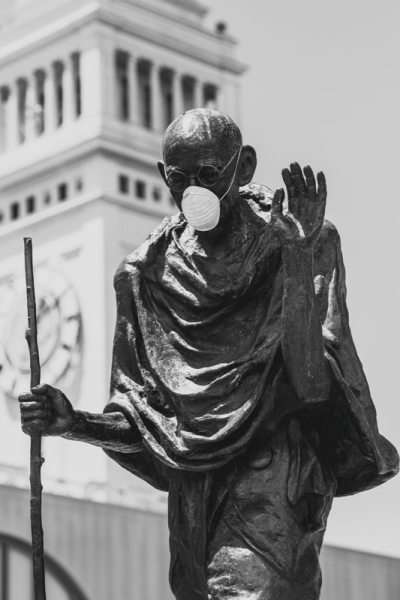
If there’s one thing the world lacks right now it is peace. The pandemic has thrown us into chaos. Certainly we would be forgiven for wondering if some of our political leaders have lost their peace altogether.
More than ever, in my lifetime, the media has become like Mordor’s all-seeing eye from The Lord of the Rings, drawing us into its vortex, paralysing us with 24/7 covid spotlighting. We’re grateful for up-to-date information, especially in a crisis, but saturation point was reached long ago. For seven months, peace has been hard to find let alone keep.
As a child growing up, I recall my father looking for peace at the end of a busy day or when us kids were harassing him for something while he had other things on his mind. ‘Give me some peace, will you,’ he would say. All of us have felt a lack of peace from time to time in our lives, while for many 2020 has been the year of little or no peace.
Earlier this month I was remembering a time in my life when I found my peace greatly disturbed, although I didn’t see it that way at first, similar to the start of covid. The year was 2007 and I was waiting for news that would impact my future. There was uncertainty and a sense of helplessness. Things were out of my control.
One day, as tension mounted, I was browsing in a second-hand bookshop not far from where I lived in Parramatta, Sydney. I came across a book there that I felt compelled to buy (along with four other books): Gandhi: His Life and Message for the World by Louis Fischer. It was the book, I later discovered, that inspired Richard Attenborough’s epic film Gandhi.
Opening its pages, I noticed the chapter “Jesus Christ and Mahatma Gandhi’. I still have this book in my library but confess to being greatly moved that day as I stood there in the bookshop – oblivious to anyone or anything else – and read these words: ‘Among those who came to sit at Gandhi’s feet were Christian missionaries. He loved Jesus, and Hindu bigots even accused him of being a secret Christian …
‘In 1942, when I [the author] was his house guest, I noticed the one decoration on the mud walls of his little hut: a black-and-white print of Jesus Christ under which was written, “He is our peace.” I asked him about it. “You are a Christian,” I said.
‘“I am a Christian and a Hindu and a Muslim and a Jew,” Gandhi replied. That made him a better Christian than most Christians.’
He is our peace! The words leapt off the page and I found myself struggling to hold back the evidence of their profound impact upon me. My ‘uncertainty’ and ‘sense of helplessness’ was really a lack of peace, and, more poignantly, a lack of Jesus in my state of heart. Surrounded by head-high bookshelves, I prayed silently but earnestly – and with success. Jesus became my peace.
The pandemic has raised and accentuated all kinds of human dilemmas, not least of which is our own vulnerability and mortality. It has emphasised elements of our lifestyle that are unsustainable; pre-covid patterns of behavior and thought that if continued post-covid will jeopardise our future.
These include a way out-of-balance consumer mindset and celebrity culture; the prevalence of depression among us; the demise of truth and the chaos created by its absence; an intolerance still of differences between cultures, ethnicities and nations; and environmental degradation now so advanced that only urgent and global unity of action can reverse.
All have one thing in common. They are conditions and circumstances that work against peace – peace in our personal lives, peace with each other and peace with God. If Jesus is our peace, then the world desperately needs this message and the onus is on all who have found it to share it around. The world needs to open its heart to the love and life found in the Christ-person.
Paul, one of the first writers about Jesus, said, ‘For he himself is our peace, who has made the two one and has destroyed the barrier, the dividing wall of hostility’ (the New Testament, Ephesians chapter two, verse 14).
May God do something momentous in the hearts of human beings at this time in our history. May Jesus help us recreate our relationships and our way of life in every sphere of human existence. ‘There is no road to peace,’ Gandhi said. ‘Peace is the road.’

Peter McGuigan describes himself as a ‘communicator and collaborator for a better world’. He is the writer of a substantive body of opinion and feature articles, and is the author of books on leadership, church polity and spirituality. He delivered award-winning journalism across several editorships and has led teams large and small in both communications and front-line mission work as a Salvation Army officer, including internationally. He has also served as the President of the Australasian Religious Press Association and Chair of The Salvation Army’s Moral and Social Issues Council. He holds a Master of Arts (Writing).